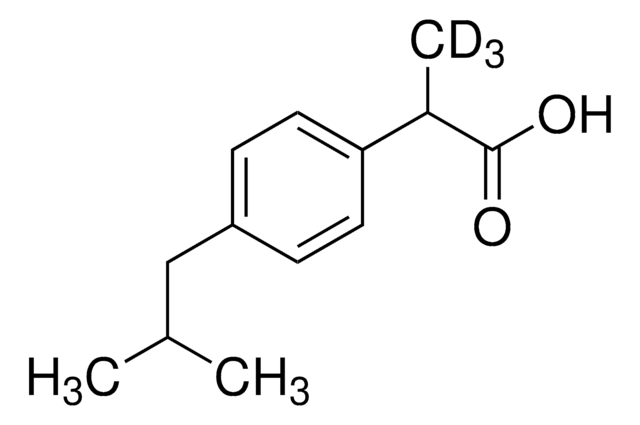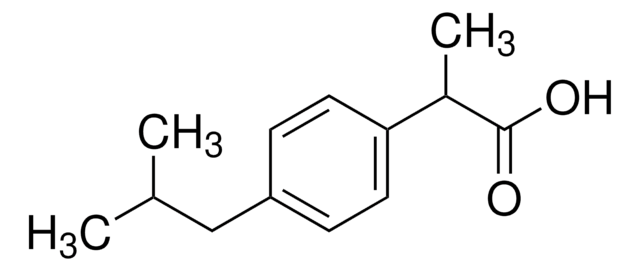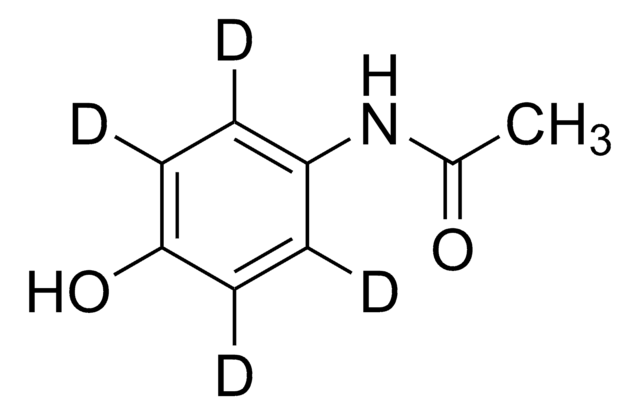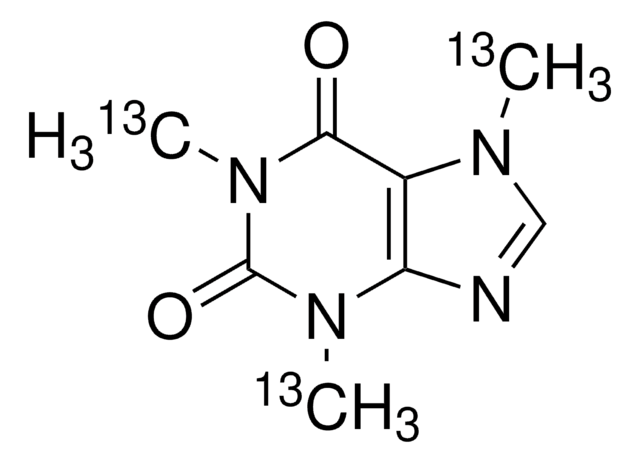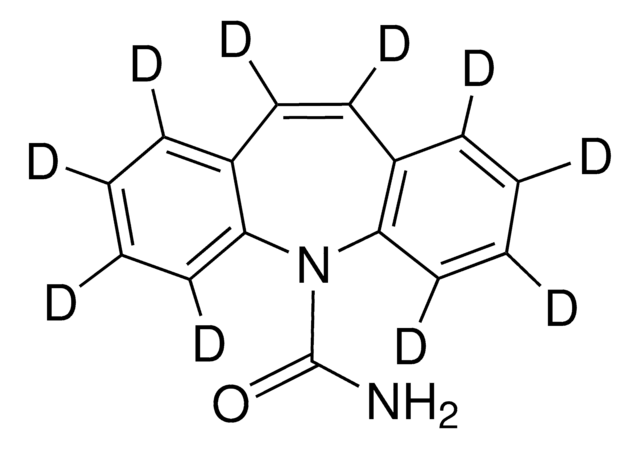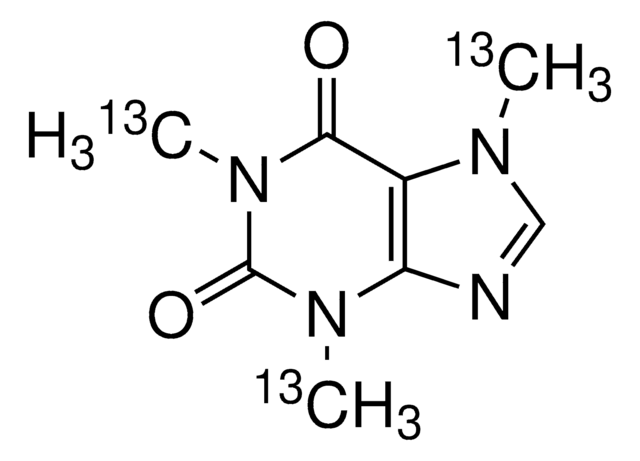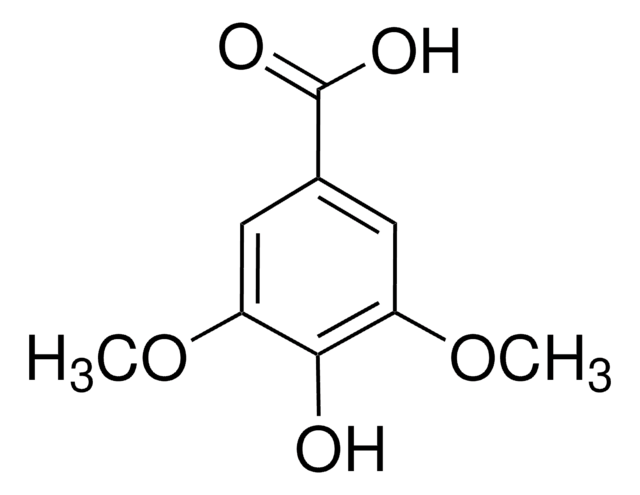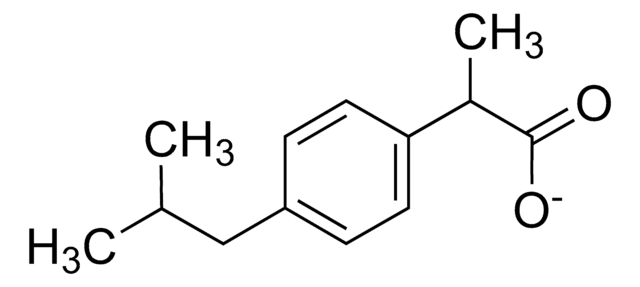55264
Ibuprofen-d3
analytical standard
Synonym(s):
α-Methyl-d3-4-(isobutyl)phenylacetic acid
About This Item
Recommended Products
grade
analytical standard
Quality Level
isotopic purity
95 atom % D
Assay
≥98.0% (HPLC)
shelf life
limited shelf life, expiry date on the label
technique(s)
HPLC: suitable
gas chromatography (GC): suitable
application(s)
environmental
forensics and toxicology
pharmaceutical (small molecule)
format
neat
mass shift
M+3
SMILES string
[2H]C([2H])([2H])C(C(O)=O)c1ccc(CC(C)C)cc1
InChI
1S/C13H18O2/c1-9(2)8-11-4-6-12(7-5-11)10(3)13(14)15/h4-7,9-10H,8H2,1-3H3,(H,14,15)/i3D3
InChI key
HEFNNWSXXWATRW-HPRDVNIFSA-N
General description
Application
Packaging
Application
replacement part
Signal Word
Warning
Hazard Statements
Precautionary Statements
Hazard Classifications
Acute Tox. 4 Oral - Eye Irrit. 2 - STOT SE 3
Target Organs
Respiratory system
Storage Class Code
11 - Combustible Solids
WGK
WGK 1
Flash Point(F)
Not applicable
Flash Point(C)
Not applicable
Personal Protective Equipment
Regulatory Listings
Regulatory Listings are mainly provided for chemical products. Only limited information can be provided here for non-chemical products. No entry means none of the components are listed. It is the user’s obligation to ensure the safe and legal use of the product.
ISHL Indicated Name
Substances Subject to be Indicated Names
ISHL Notified Names
Substances Subject to be Notified Names
JAN Code
55264-BULK:
55264-50MG-PW:
55264-VAR:
55264-50MG:
Choose from one of the most recent versions:
Certificates of Analysis (COA)
Don't see the Right Version?
If you require a particular version, you can look up a specific certificate by the Lot or Batch number.
Already Own This Product?
Find documentation for the products that you have recently purchased in the Document Library.
Customers Also Viewed
Chromatograms
suitable for GCapplication for HPLCOur team of scientists has experience in all areas of research including Life Science, Material Science, Chemical Synthesis, Chromatography, Analytical and many others.
Contact Technical Service